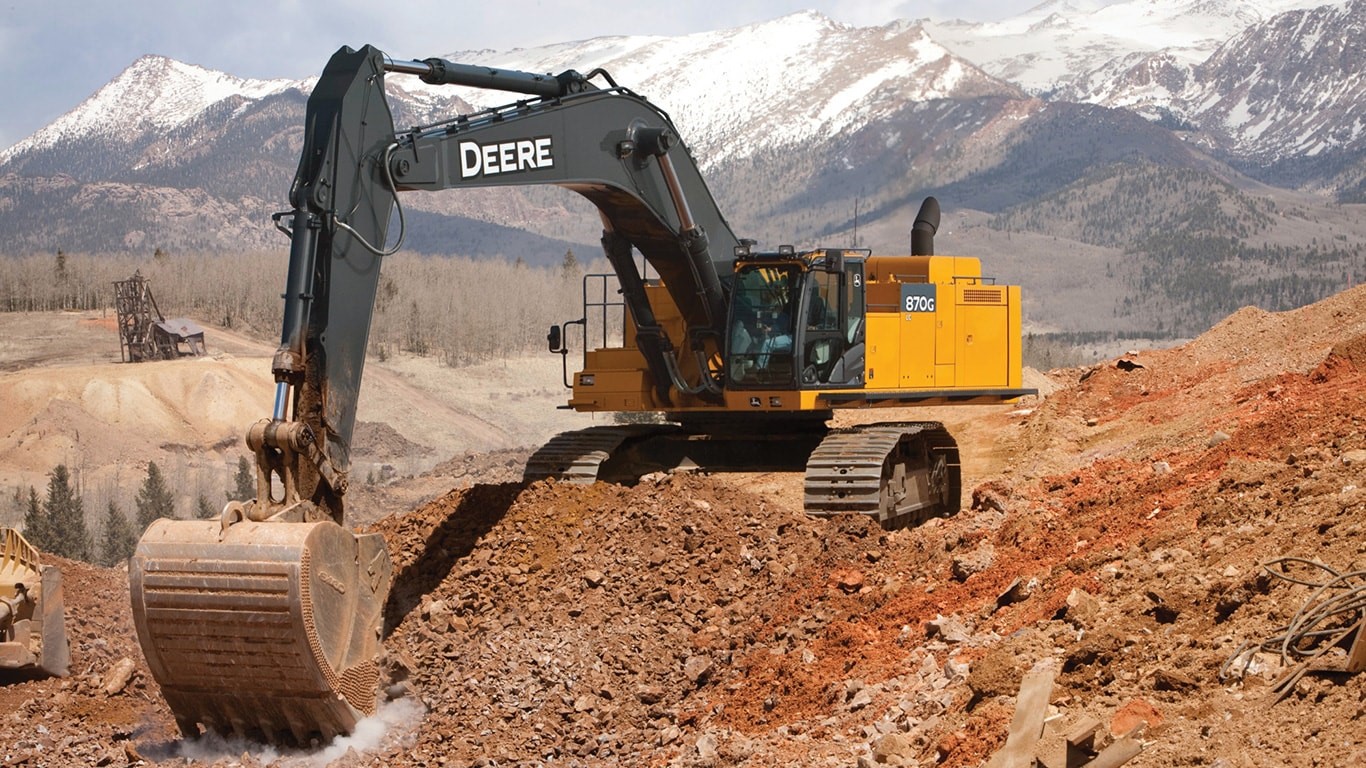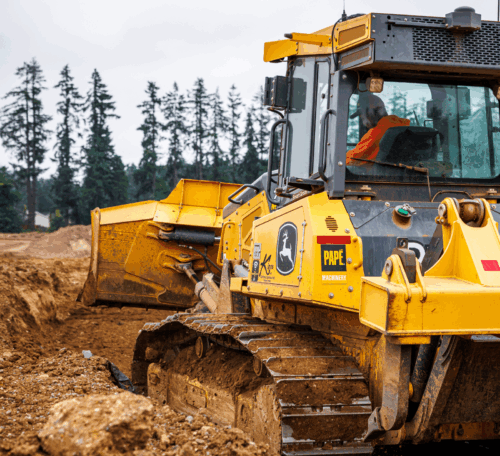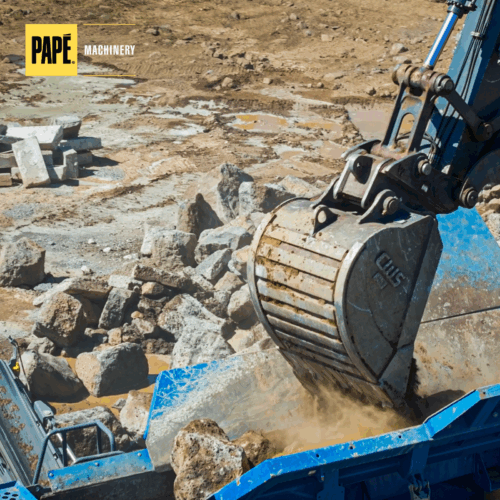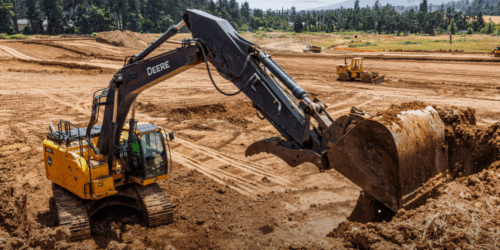When properly maintained and operated with care an excavator can have a very long useful life. Reckless operation, on the other hand, can lead to accidents and costly repairs long before they are should be necessary. Our parts and service team at Papé Machinery Construction and Forestry have put together some helpful excavator tips to help you keep your excavators running in great condition and maximize the return on your investment.
What Not To Do In An Excavator
- Use The Wrong Attachments
Using a bucket that is too small or too big for the job and your productivity can actually decrease. The wrong size bucket can be difficult to control, cause hydraulics to run hotter, reduce fuel efficiency, and result in longer run times. These consequences of using the wrong bucket can lead to your equipment requiring maintenance sooner and the bucket itself needing to be replaced sooner.
The wrong excavator attachment can also impact other equipment on your jobsite. Longer wait times for load out trucks to be filled result in fuel waste and more frequent maintenance for your dump trucks, too.
- Digging Over Drive Motors
There are, of course, exceptions to every rule, but whenever possible it’s best to avoid digging over your drive motors. The drive motors are expensive to replace and digging over them causes unnecessary stress on the component, increases the rate of wear and tear, and accelerates the time to replacement.
By keeping the drive end away from the work, the force is on the idlers and track where it should be. Working this way also protects the drive motors from being damaged by falling rocks and debris.
- Forgetting Your Counterweight
Know how far your counterweight hangs over your tracks and always be aware of obstacles on the jobsite. You need to remember that when you turn to the right or left your counterweight will swing out over the tracks and you need to have set yourself up with appropriate clearance. We see excavators in the shop all the time that are all scraped up from the operator forgetting about the tail swing or misjudging the distance required to clear an obstacle.When working in tight spaces or urban environments, a zero-swing or reduced-swing excavator is a great option to avoid having to navigate tail swing.
- Not Knowing The 3 S’s
Excavating and trenching work is some of the most hazardous on a construction site. It’s critical that excavator operators are mindful of “The Three S’s”: shoring, shielding, and sloping when doing this type of work to ensure your own safety and the safety of everyone else on the site. To avoid cave-ins, excavator operators should not begin work unless the site has been properly set up for safe digging.These are just a few of the mistakes we see happening all the time, but they aren’t the only ones. The best way to take care of your excavator and your investment is to read the operator’s manual and do what it says! Everything from safety, maintenance, and operation is covered in the manual.
For more helpful equipment tips, read our construction equipment blog or contact your nearest Papé Machinery Construction and Forestry location to speak to one of our equipment experts.







